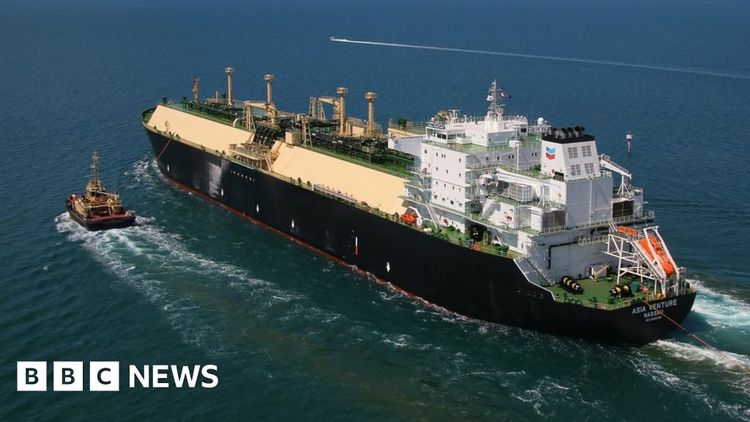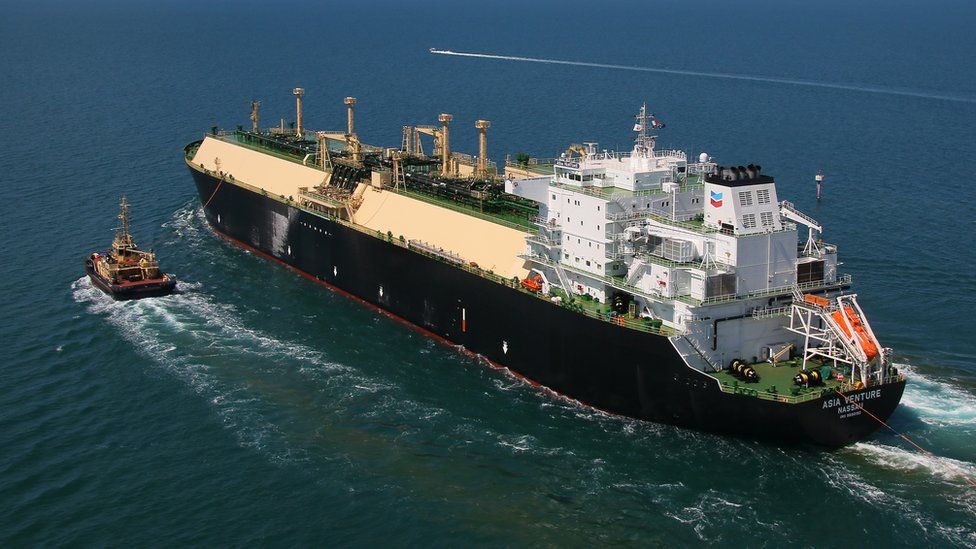Chevron: Workers at major Australia gas facilities to strike

The Chevron Wheatstone facility in Western Australia provides liquefied natural gas to markets all around the world.

Employees at two major liquefied natural gas (LNG) facilities in Australia are preparing to engage in a work stoppage starting on 7 September. This action could potentially result in an increase in international prices.
After weeks of talks with labor unions regarding salaries and work terms,
Chevron, the mammoth American energy company that runs the establishments, affirmed its commitment to ensuring the safety and dependability of its operations should any disturbance occur at its sites.
Concerns regarding the possibility of strikes have recently resulted in an increase in wholesale gas prices across Europe.
The Wheatstone and Gorgon facilities generate over 5% of the global liquefied natural gas supply, with a total of roughly 500 employees presently working at these two establishments located in Western Australia.
The planned protest is set to cause workers to cease their current tasks for a maximum of 11 hours each day, as outlined in a strike strategy reviewed by the BBC.
Chevron stated on Tuesday that although they don't think it's essential to resort to industrial action to come to an understanding, they acknowledge that employees have the freedom to engage in safeguarded industrial action.
The blog post stated that they would "persist in engaging in negotiations while striving to achieve results that benefit both the workers and the organization."
The Coalition of Offshore Unions, a collaboration of two labor unions that advocate for energy workers, including those employed at Chevron, stated that they have been engaged in negotiations with the company to settle several significant matters. These matters encompass remuneration, job stability, work schedules, and standards for training.

The blog mentioned that employees have continuously felt let down by the company's tactics during discussions with the union. Chevron has been unwilling to acknowledge that the work carried out by their employees should be governed by a universally recognized agreement.
According to energy specialist Saul Kavonic, he predicts that the strike will only have a small influence on worldwide gas prices.
Nevertheless, he cautioned that there could be sharp increases in energy prices if the industrial strike were to intensify.
"If, by some remote chance, there is a long-lasting disturbance in the supply chain on a massive scale, prices may return to the alarming levels experienced last year," he mentioned.
Samantha Dart, a high-ranking energy expert from Goldman Sachs, recently expressed to the BBC that there is a predicament concerning the liquefied natural gas production plants located in Australia, as they cater to the entirety of the Asian region.
When there is a shortage of LNG in Asia, they turn to the Atlantic Basin to purchase it. As a result, LNG shipments originally intended for Europe are redirected to Asia due to the increased competition for supply in that region.
The military incursion of Russia into Ukraine in the previous year resulted in a significant surge in the prices of oil and gas, consequently causing a substantial increase in the costs of energy for both households and businesses.
In the previous week, there was a significant increase in the cost of gas in Europe. This surge occurred due to apprehensions regarding potential interruptions in supply at Chevron and another Australian LNG facility operated by Woodside Energy.
Woodside announced on Thursday that it had achieved a preliminary understanding with trade unions representing employees at its North West Shelf facility.
The combined Woodside and Chevron facilities account for approximately 10% of the global supply of LNG.
Russia significantly reduced the amount of natural gas export to Europe following the commencement of the conflict in Ukraine in 2022.
This caused a surge in prices globally, prompting nations to explore alternative energy sources like liquefied natural gas (LNG).
Australia is a prominent global exporter of LNG, and its provisions have played a significant role in moderating international energy prices.
LNG (liquefied natural gas) refers to methane gas, sometimes with the addition of ethane, that has been rid of any impurities and then chilled to a temperature of around -160C.
This process converts the gas into a condensed state, allowing for transportation in tanker trucks operating under high pressure.
Once the LNG reaches its final location, it undergoes the process of conversion back into a gaseous state. Subsequently, it can be utilized just like any conventional natural gas for various purposes such as heating, cooking, and generating power.























